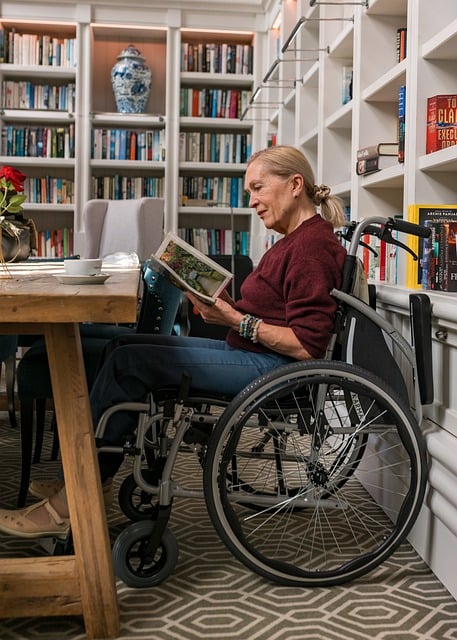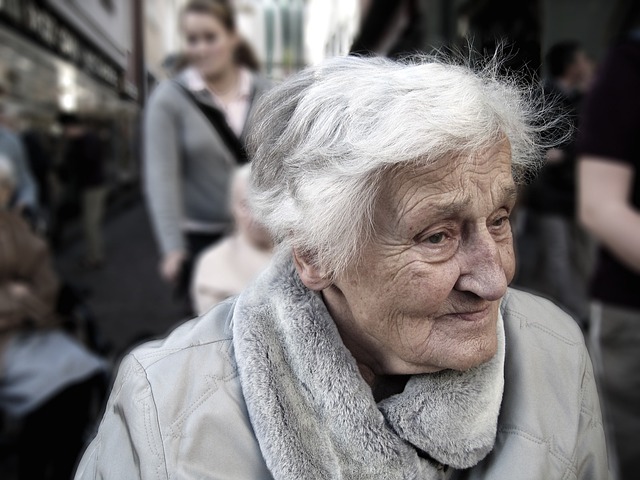Elderly Companion Services are crucial for enhancing the lives of seniors by providing both nutritional support and meaningful companionship. These services assist with meal preparation according to individual dietary needs, ensuring proper nutrition which is vital for maintaining immune health, managing chronic conditions, and preserving muscle and bone density. The shared dining experience fosters social interaction, reducing the risk of isolation and improving mental health. Moreover, these services help monitor food intake to prevent issues like malnutrition or dehydration. By offering a combination of practical assistance with grocery shopping and meal preparation, along with emotional support during meals, Elderly Companion Services play a pivotal role in promoting the overall well-being of older adults, enabling them to maintain their independence and dignity while enjoying a better quality of life. This holistic approach to senior care is instrumental in supporting health and vitality among the aging population.
As we age, the simple act of meal preparation becomes increasingly important not just as a nutritional necessity but also as a social endeavor. This article delves into the intersection of meal preparation and companionship, particularly within elderly care, emphasizing how these practices can significantly enhance the quality of life for seniors. We explore the critical role of nutrition in maintaining health and well-being among the elderly, the benefits of dining with companions, and the pivotal part that elderly companion services play in ensuring a balanced diet. With a focus on safe cooking methods, meal planning strategies, and the impact of social interaction on appetite and digestion, this article aims to guide caregivers and service providers in creating nutritious, engaging, and fulfilling dining experiences for seniors. Through real-life case studies, training recommendations, technological insights, and practical tips for adapting meals to various dietary needs, we underscore the importance of a holistic approach to meal preparation and companionship in elderly care.
- The Role of Meal Preparation in Elderly Care
- Understanding the Importance of Nutrition for Seniors
- Benefits of Companionship During Meal Times for the Elderly
The Role of Meal Preparation in Elderly Care

Meal preparation plays a pivotal role in elderly care, serving as a cornerstone of nutritional health and well-being for seniors. As individuals age, they often face challenges that make cooking for themselves a difficult task, ranging from physical limitations to cognitive declines. This is where elderly companion services come into the picture, offering not only assistance with meal preparation but also fostering valuable companionship. These services ensure that nutritious and balanced meals are prepared, adhering to any specific dietary requirements or preferences. Moreover, the act of sharing a meal in the company of a caregiver can significantly enhance the dining experience, providing both social interaction and emotional support. The presence of a companion during meal times not only helps monitor food intake for health and safety but also promotes a sense of connection and shared enjoyment of meals, which is crucial for maintaining an elderly person’s quality of life.
The integration of elderly companion services into meal preparation routines is a holistic approach to care that transcends mere dietary needs. These services are tailored to respect the autonomy and preferences of seniors, allowing them to maintain independence while receiving the necessary support. The companions who provide these services often become integral members of the senior’s daily life, offering a consistent presence and aiding in the prevention of social isolation, which is a common concern among the elderly. By combining nourishment with companionship, elderly companion services effectively address the multifaceted needs of seniors, ensuring they receive not just meals but also the vital human connection that enriches their lives.
Understanding the Importance of Nutrition for Seniors

As individuals age, maintaining a balanced diet becomes increasingly critical for their health and well-being. The elderly have distinct nutritional needs due to physiological changes, underlying health conditions, and often less active lifestyles. Understanding the importance of nutrition for seniors is pivotal in supporting their immune system, managing chronic diseases, and preserving muscle mass and bone density. Elderly Companion Services play a significant role in addressing these needs by providing companionship that encourages meal engagement and supports healthy eating habits. These services not only offer social interaction, which can enhance the appetite, but they also assist with grocery shopping, meal preparation, and ensuring that meals are both nutritious and tailored to dietary restrictions or preferences. This assistance is instrumental in safeguarding the health of seniors by providing a consistent routine that includes well-balanced meals, thus improving their quality of life. With the support of Elderly Companion Services, seniors can enjoy their meals with the companionship that enhances the dining experience, making each meal a moment to look forward to and appreciate. This not only contributes to their physical health but also enriches their emotional and social lives, fostering a holistic approach to senior care.
Benefits of Companionship During Meal Times for the Elderly

Engaging in meal preparation and sharing meals with companions can offer numerous benefits to the elderly, particularly those who reside alone or are experiencing a decline in their ability to perform daily tasks. The presence of an elderly companion service provides not just assistance in preparing nutritious meals but also fosters social interaction, which is crucial for emotional well-being. Studies have shown that regular social engagement during meal times can enhance the elderly’s mental health, reduce feelings of loneliness, and even improve physical health outcomes by encouraging better eating habits and dietary compliance.
Moreover, companion services for the elderly during meals offer an opportunity to monitor nutrition and ensure that the individual is consuming a balanced diet. These companions can be trained to notice signs of malnutrition or dehydration and can assist in making meal choices that align with dietary restrictions or health goals. This level of care and attention not only supports the physical health of the elderly but also contributes to their overall quality of life, allowing them to maintain independence while enjoying the companionship and comfort that comes from shared meals.
In conclusion, meal preparation and companionship play pivotal roles in the well-being of elderly individuals. The act of preparing meals tailored to nutritional needs not only supports health but also fosters a sense of purpose and routine. Companionship during meal times further enhances these benefits by providing social interaction that can alleviate loneliness and enrich the dining experience. Elderly companion services offer a thoughtful solution for seniors who may lack regular companionship, ensuring they receive both the sustenance and the social engagement necessary for a fulfilling life. Thus, integrating meal preparation with compassionate company care is a multifaceted approach that addresses essential aspects of senior living.






